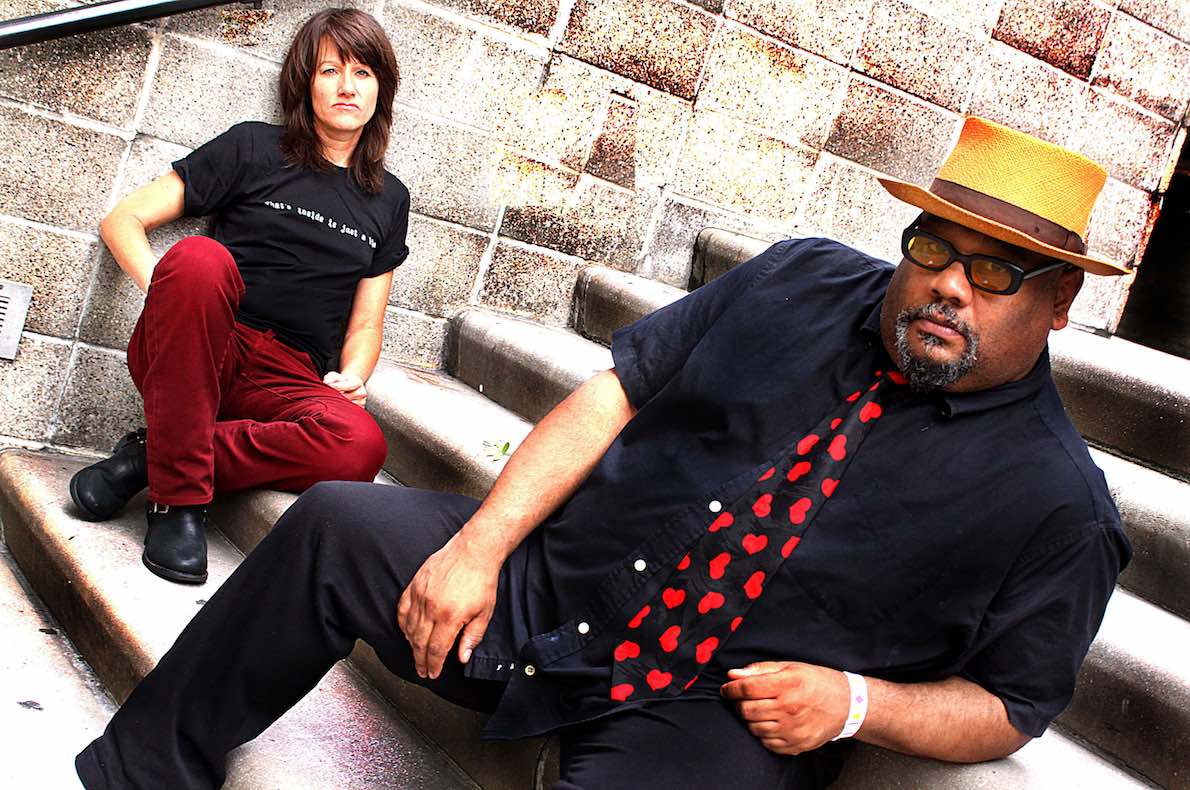Funny, I’d been thinking a lot about James Baldwin lately, which comes as no surprise to Stew, the singer/songwriter of the rollicking and moving Passing Strange on Broadway, whose homage to Baldwin opens the Fringe this weekend. (Tickets for an added Sunday matinee are on sale here).
“Anybody who knows Baldwin’s work has been thinking about him these days,” Stew says, calling from New York. “The level of discourse about the American situation and race has just sunk to an incredible low. It’s like children on schoolyards articulate more clearly than what you see when you turn on the TV. Back then, you had public intellectuals like Norman Podhoretz, Norman Mailer, Richard Wright, Baldwin. Even William F. Buckley, who you’d disagree with, but at least he could talk. I miss that level of discourse, that sense that people had ideas that didn’t just fit into a tweet.”
See Stew and Heidi PerformVideo
Instead, Baldwin took seriously the role of the artist: To speak hard truths without regard to ideology. He was impossible to categorize, once telling The Paris Review, “On one side of town, I was an Uncle Tom, and on the other the Angry Young Man.” Black Panthers considered him a traitor, Martin Luther King, Jr. prohibited him from speaking a the March on Washington, and J. Edgar Hoover considered him a threat to the nation. “A real writer is always shifting and changing and searching,” he once wrote. He rejected labels of all kinds; to him, race was first and foremost a social construct. “Color is not a human or a personal reality,” he wrote. “It is a political reality.”
Baldwin was the freest of free thinkers; no idea was unworthy of inspection. What a contrast to today, when what passes for public debate consists of dueling talking points, polarized sides always in their respective corners. On race, Baldwin went beyond chronicling grievance and instead wrote empathetically but unsparingly about whites, and focused on the deeper meanings of racism: “Whatever white people do not know about Negroes reveals, precisely and inexorably, what they do not know about themselves,” he wrote in The Fire Next Time.
Do yourself a favor, and read some Baldwin. The arrival of Stew’s show sent me back to my bookcase and some dog-eared pages in Notes of A Native Son and Giovanni’s Room. Or, at this time when much is being said—precious little of it stirring or memorable—about the meaning of the American flag thanks to a football quarterback’s refusal to stand during the national anthem, watch this excerpt of a 1965 debate between Baldwin and the aforementioned Buckley, and tell me we don’t desperately miss this voice (see around the 4:30 mark):
No wonder that, to Mark Stewart, a young black kid growing up in 1970s Los Angeles, Baldwin became a life-changing influence. Someone who, at 24, moved to France in order to escape “becoming merely a Negro; or, even, merely a Negro writer.” No wonder that, as he chronicles in Passing Strange, Stew also went the expat route. “If there’s such a thing as spiritual copyright infringement, I committed it,” Stew says. “There are scenes in Passing Strange straight out of Baldwin, like when I pretend to get the holy spirit—that’s from Go Tell It On The Mountain.”
I’m looking forward to catching Stew’s homage to that rarest of contemporary creatures, a fearless public intellectual. And, if you’ve ever caught Stew’s act with his longtime collaborator Heidi Rodewald and their tight five-piece band, you know the Wilma Theater will be rocking.
Notes of a Native Song, by Stew and Heidi Rodewald, at the Wilma, September 8-11. Tickets here.
Header photo: Heidi Rodewald and Stew, courtesy of the songwriters



